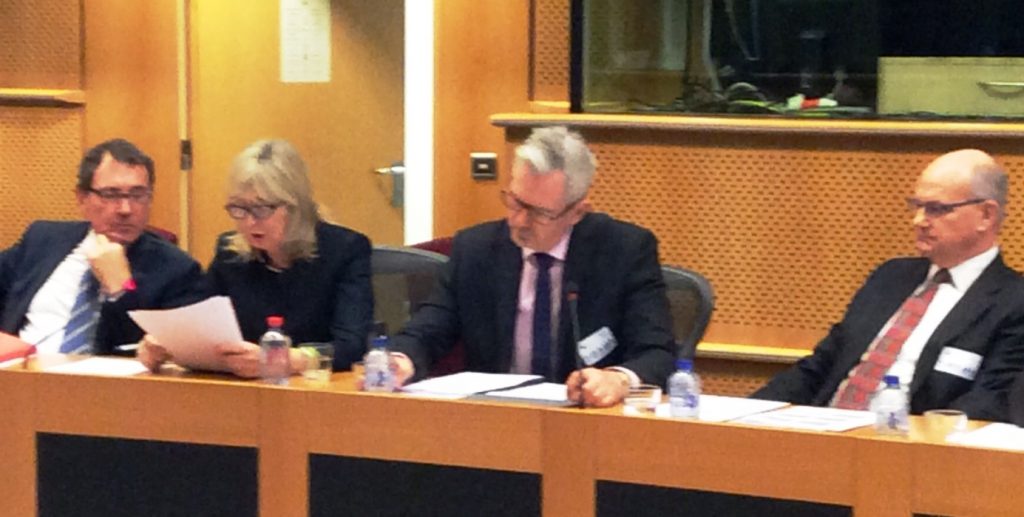With the support of Professor Christopher Hodges MA PhD FSALS,
Professor of Justice Systems, University of Oxford
Head of the CMS/Swiss Re Research Programme on Civil Justice Systems, Centre for Socio-Legal Studies,
and Fellow of Wolfson College, University of Oxford
Honorary Professor, China University of Political Science and Law, Beijing
With the 2013/11 Directive on alternative dispute resolution being transposed into national law by Member States by 9 July 2015, NEON’s conference on “Strengthening ADR in the energy sector” on 27 January 2015 at the European Parliament, was a great opportunity to learn about and discuss the state of play in the area of Mediation and Ombudsmanry in Europe in this particular sector.
During his presentation, Mr Rochefort, MEP, Vice-Chair, IMCO Committee on the Internal Market and Consumer Protection and shadow rapporteur for the ADR directive, insisted on the role of ombudsmen to balance the market, by solving and anticipating issues consumers will face in a cheap and effective way. To Ms O’Reilly, European Ombudsman, “ombudsmen can enable both sides in a dispute to come out as winners, through friendly solutions to complaints, through mediation, or through apologies”. Consumers will engage in the market if they feel safe enough if they know that they are well protected. In the future, stakeholders will need even more alternative dispute resolution mechanisms to improve the market, build trust and empower consumers.
As Ms O’Reilly said, “an ombudsman can only be as effective as their reputation allows them to be”. This reputation is built on awareness-raising and transparency, on guarantees of impartiality and independence, agreed Ms Stajnarova from BEUC.
Professor Hodges, Professor of Justice Systems, University of Oxford, noticed that the work of independent ombudsmen scheme, such as NEON members, goes beyond dispute resolution. Ombudsmen are autonomous observers and through complaints and dispute data management, they act not only as whistle-blowers but as regulatory supports for policy makers. They build their moral authority on formulating recommendations towards companies, regulators and policy-makers, feeding them back with their expertise and aggregated data on market trading conditions. Some of them also have the possibility to launch investigations on their own initiative. Systemic problems can be identified and solutions proposed to improve the service provided to all citizens, all consumers, not just to those who turn to the ombudsman for help.
Professor Hodges added that ombudsmen also give advice to consumers, whereas arbitration schemes would not. Hence, in the retail energy market ombudsmen’s work boosts consumers’ empowerment, and builds trust among consumers and energy companies.
Ms O’Reilly, bringing her support to the development of NEON, underlined that ombudsmen’s moral authority must be “nurtured and protected above all else, then [they] can achieve outcomes that [they] are uniquely positioned to accomplish”.
Professor Hodges strongly recommends every Member State to establish access to a single Energy Ombudsman, not an arbitration ADR scheme, or multiple ADRs. For NEON, complainants are more than consumers, they are citizens. An organisation like NEON, the National Energy Ombudsmen Network, by stimulating its members’ moral authority, will facilitate the resolution of disputes and empower citizens-consumers as energy market actors all across Europe.
Documents are available upon request.


